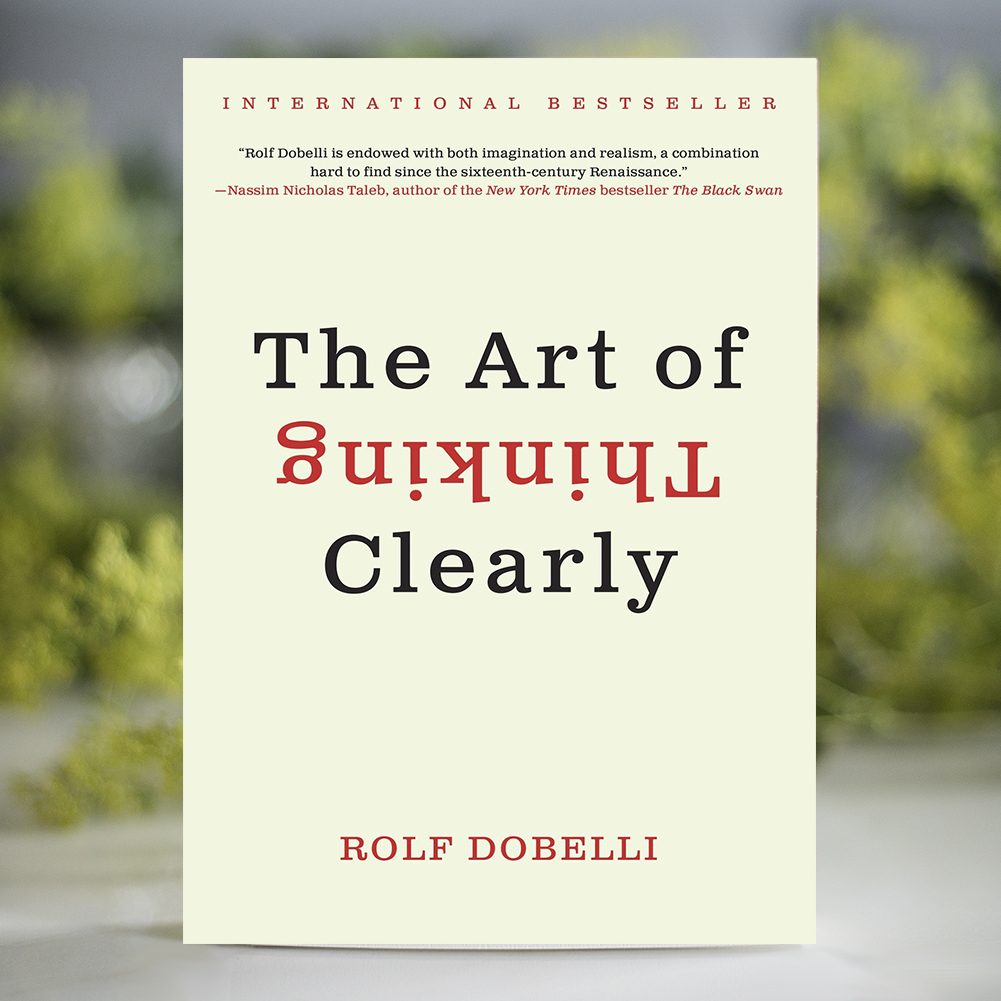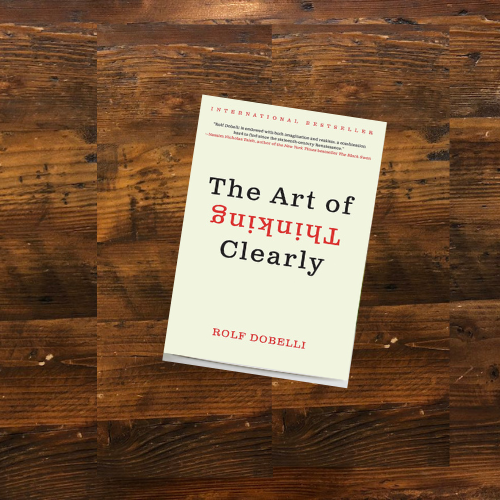By Rolf Dobelli

Here is a condensed cognitive bias checklist you can consult before making a personal, professional, or financial commitment, and avoid wasting your time and hard‐earned money.
Extrapolation error (aka: Cluttering illusion)
Our brains love to find meaning in short‐term trends and rush to conclusions (we might move to a city with long winters after spending just
five days in that city in the middle of summer or buy a $2000 treadmill after using a treadmill at the gym a handful of times). We irrationally
make big decisions based upon small data sets ‐ especially if a small data set supports something we want to do.
Confirmation bias
“What a human being is best at doing is interpreting all new information so that their prior conclusions remain intact.” ‐ Warren Buffett
If there is something you feel like doing, you will almost always find enough evidence to support doing it. If you’re looking for a new house
and have a good feeling the instant you walk into an open house, you will expand the list of pros for the home, and the cons (like a long
commute to work or a noisy road behind the house) will suddenly matter less.
Special case syndrome
Business leaders go forward with costly projects, despite knowing similar projects have failed because they insist the next project is
“special” and an “exception.”
Investors routinely buy at peak euphoria and sell when everyone else is panicking because they insist that what is happening is a special
case unlike any time in financial history. As Sir John Templeton famously said, “The four most expensive words in the English language are,
‘This time it’s different.'”
Not‐invented‐here syndrome
When we have an idea for a new business or family vacation, we feel it is far more brilliant than it is, and we are far more likely to commit
to the idea than if it came from someone else. Dobelli says, “We are drunk on our own ideas. To sober up, take a step back every now and
then and examine their quality in hindsight. Which of your ideas from the past ten years were truly outstanding? Exactly.”
Survivorship bias
When trying to emulate someone else’s success, remember behind every successful person is a graveyard of unsuccessful people who are
silent. When you drive around town, you see hundreds of stores open and don’t see all the businesses that failed. If you drove through
town one day and saw half of the stores abandoned (representing the average failure rate after 5 years), you might think twice before
quitting your job and investing your life savings in a brick‐and‐mortar business

